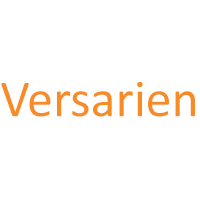Versarien Plc (LON: VRS), the advanced engineering materials group, has announced the launch of a new biosensor chip utilising novel graphene barristor sensor platform technology. These graphene barristor devices, developed in South Korea by A Barristor Company (ABC), will utilise chemical vapour deposition (CVD) grown graphene, that is produced under a Versarien licence. Versarien has signed a distribution agreement with ABC to distribute the products in the UK and Europe.
A barristor (triode device) is a new type of graphene-based transistor with a Schottky barrier between graphene and silicon. The current modulation is amplified more than 10,000 times compared to graphene field-effect transistors (GFET) enabling the barristor transistors to overcome many GFET limitations. In these new products, the graphene surface is terminated with either pyrenebutanoic acid succinimidyl ester (PBASE) or a customer preferred linker. PBASE is one of the most frequently used linkers for the surface modification of field-effect transistor (FET) biosensors based on carbon nanotubes and graphene. The products can be supplied as individual chips or on a wafer scale.

